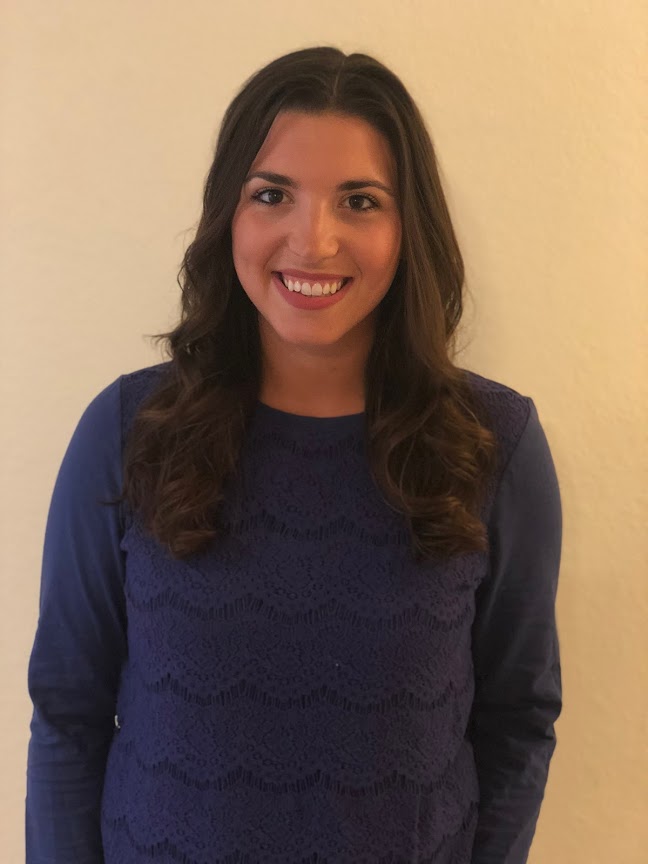Past Fellow Interview: Alyssa Lanzi, PhD, CCC-SLP

Fellow Year: 2015 Conference Mentor: Edythe Strand
Postdoctoral Fellow, University of Delaware
Areas of interest: Cognitive Communication, Mild Cognitive Impairment, Person-centered assessment and outcome measurement.
ANCDS: Why were you interested in the ANCDS Fellowship Program?
Alyssa Lanzi (AL): My interest for the ANCDS Fellowship Program began when Dr. Sarah Wallace shared with me that I could possibly have a one on one opportunity to talk with the researchers who published the texts and articles that I read in class. Thinking back, I always valued mentorship and asking questions and I truly saw ANCDS an invaluable opportunity for me early on in my career.
ANCDS: Why would you recommend the ANCDS Fellowship Program to future students?
AL: I would recommend this fellowship because we all need mentors and opportunities to ask questions, learn from others, and build a rich social network.
ANCDS: What did you enjoy about the ANCDS Fellowship Program? What benefits did you receive from this program?
AL: To me ANCDS is the Emmy’s of adult neurogenic communication research and clinical practice. I remember being “star struck” because the first experience at ANCDS is the mentor/mentee breakfast. This was an amazing experience, because it quite literally gave me a seat at the table with all of these stars. Thus, I was immediately able to engage in thoughtful conversation and ask all of my questions to my mentor. Throughout the breakfast, my mentor provided me with heartfelt and thoughtful responses. Prior to ANCDS, I was still unsure if I would pursue a PhD. However, the conversations I had throughout the day with Dr. Strand encouraged me to continue pursuing clinical research. Some of the conversations we had that day still influence my path today.
ANCDS: Describe your current or recent research/teaching/clinical project.
AL: Recently, I graduated with my PhD from the University of South Florida with mentor Michelle Bourgeois. My dissertation examined compensatory cognitive assessment and treatment approaches for adults with mild cognitive impairment. As part of my dissertation, I developed the Functional External Memory Aid Tool (FEMAT) to support clinical implementation and person-centered delivery of compensatory interventions that enhance everyday skills. Currently, I am working as a postdoctoral fellow with Dr. Matthew Cohen at the University of Delaware. Primarily we are focused on determining and validating clinical cut points for patient report outcome measures for adults with communication impairments.
ANCDS: Why were you interested in the above project?
AL: As a clinician, I always felt a disconnect between assessment and treatment. Specifically, that many of our assessment tools are diagnostic and do not reflect an individual’s strengths or everyday life. This information was lacking from all of my diagnostic sessions but was the most important information for treatment planning. As a researcher, I wanted to investigate approaches to enhance the functional skills of adults with possible progressive cognitive impairments. Thus, my work described above attempts to blend both of my interests.
ANCDS: Describe your future plans related to research/teaching/clinical projects.
AL: Through my postdoc, I intend to gain the necessary skills in rehabilitation measurement to further refine and develop the tools necessary to design person-centered treatments and evaluate functional effects. Such skills will guide me to pursue my long term goal of becoming an independent clinical researcher who develops and investigates evidence-based cognitive treatments that promote independence for adults with neurodegenerative conditions.
ANCDS: How are you involved in ANCDS now?
AL: Currently, I am on the membership committee and have been since 2017. It has been a great experience transitioning from a student to professional member on the committee.
ANCDS: What are the benefits to being involved with ANCDS?
AL: Learning from the amazing members involved in the organization. Consuming the most state of the art and meaningful research. Developing personal relationships with colleagues.
ANCDS: What excites you about research/teaching/clinical projects?
AL: The idea that we are never finished and that the impressive and hard work that we all do actually impacts the everyday lives of patients and family members. The idea that I can actually enhance the daily skills of a client and guide others through research and teaching to do the same is the best feeling in the world.
